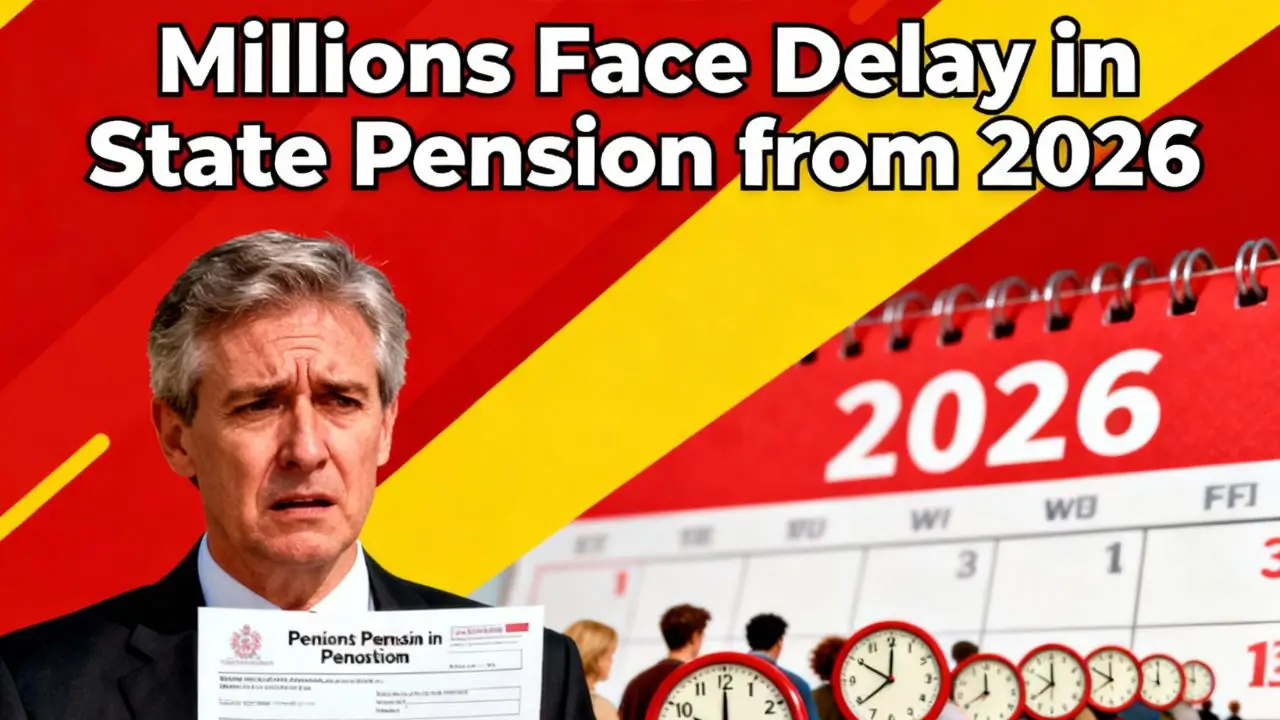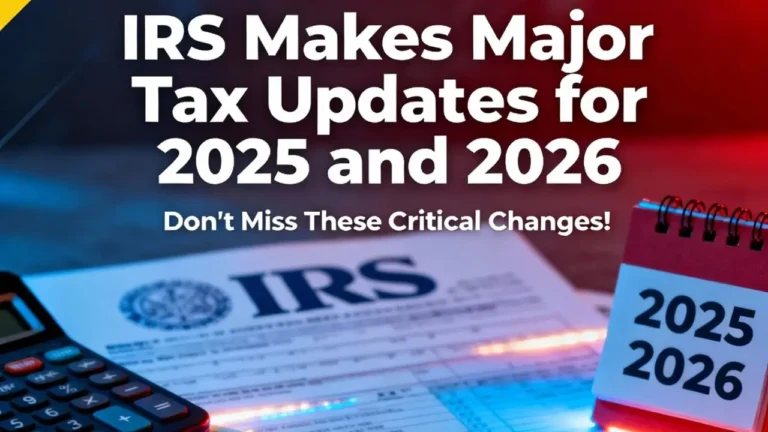If you’re approaching retirement, there’s an important change on the horizon. Beginning in 2026, the UK State Pension age will officially rise from 66 to 67, affecting millions of men and women across the country. This shift, which has been planned for years, is finally coming into effect — and it could alter when you start receiving your pension.
For those born in the 1960s and 1970s, this update is especially significant. The adjustment means you might need to wait an extra year before drawing your State Pension, making early financial planning more important than ever.
State Pension Age 2026: What’s Changing and Who Is Affected
The State Pension age increase stems from the government’s long-term plan to ensure the pension system remains sustainable as life expectancy continues to rise. Under the Pensions Act 2014, the transition will happen gradually between April 2026 and April 2028.
By the end of this phase, anyone born between March 6, 1961, and April 5, 1977 will reach their State Pension age at 67 instead of 66. This means the State Pension will be fully accessible only once individuals hit that new threshold.
Details of the 2026 Pension Age Change
| Detail | Information |
|---|---|
| Current Pension Age | 66 years |
| New Pension Age | 67 years |
| Who Is Affected | People born Mar 6, 1961 – Apr 5, 1977 |
| Implementation Period | April 2026 – April 2028 |
| Next Review | March 2029 |
| Potential Future Increase | To age 68 (possible between 2044–2046) |
Why the Government Is Raising the Pension Age
The government argues that as people live longer, it’s essential to balance the costs of providing pensions with the financial realities of an aging population. Without reform, State Pension spending could rise sharply in the coming decades.
Chancellor Rachel Reeves has emphasized that a new independent review will examine whether additional increases are needed. The review, due in 2029, will consider factors such as life expectancy, affordability, and overall pension adequacy. It will be led by Dr. Suzy Morrissey, supported by the Government Actuary’s Department, which will assess demographic and financial data.
Who Will Receive the State Pension Later
The new policy primarily affects those born between March 6, 1961, and April 5, 1977. People in this group will have to wait until age 67 to claim their pension, effectively delaying their access by a year compared with today’s retirees.
The Department for Work and Pensions (DWP) will contact all affected individuals with an official letter confirming their new pension age. This helps ensure that people nearing retirement are fully aware of when they can start receiving payments.
Possible Rise to 68: What Lies Ahead
Although the increase to 67 is set, discussions are already underway about raising the age to 68 in the future. The previous Conservative government had considered bringing that forward to between 2041 and 2043, though no final decision was made.
Now, under the Labour government, the idea of accelerating this timeline could resurface. Rising longevity and growing pension costs continue to pressure the Treasury, as State Pension payments account for more than 80% of the £175 billion pensioner welfare budget. Without additional reforms, that figure could climb to nearly 8% of GDP within the next 50 years — up from around 5.2% today.
Experts Warn of Challenges for Older Workers
While people are living longer, the number of years they spend in good health has not increased as quickly. This creates potential difficulties for individuals in physically demanding jobs who may struggle to keep working into their late 60s.
Helen Morrissey, head of retirement analysis at Hargreaves Lansdown, explains:
“Many people could face real difficulties continuing to work until their mid-to-late 60s and could experience a gap in income while waiting for the State Pension to start.”
These challenges highlight the need for both government and employers to provide better support for older workers, especially as the retirement age rises further.
How to Check Your Pension Age and Eligibility
To see exactly when you’ll start receiving your pension, you can use the government’s State Pension Age calculator. It shows your official retirement date and the estimated weekly amount you could receive.
It’s also worth checking your National Insurance record to confirm that you have enough qualifying years to get the full State Pension, which currently pays £221.20 per week (as of 2025). Gaps in your National Insurance contributions can reduce your entitlement, but they can often be filled by making voluntary contributions.
What the 2026 Pension Age Increase Means for You
If you’re affected by the new rule, it’s not just about waiting longer — it’s about planning smarter. Here are key steps to help you prepare:
- Review your retirement savings: Assess whether your private and workplace pensions can cover expenses during the extra year before your State Pension starts.
- Reevaluate your timeline: Consider whether extending your working years or adjusting your savings plan makes sense.
- Calculate your new income mix: Combine workplace pensions, personal savings, and possible part-time work to bridge any gaps.
- Stay informed: Keep an eye on government updates, as future reviews may change eligibility again.
These small steps can help prevent financial strain during the transition period.
Could the Pension Age Increase Affect Future Generations?
Experts believe that this rise is unlikely to be the last. With life expectancy continuing to grow and the working-age population shrinking, the government faces mounting pressure to control spending while ensuring fairness across generations.
The upcoming 2029 pension adequacy review will likely shape how future retirees plan their finances, possibly resulting in another round of reforms within the next two decades.
For now, the best strategy for those nearing retirement is to stay proactive, understand the timeline, and explore additional savings options to maintain financial stability.
Frequently Asked Questions
Q1: 1. Who will be affected by the State Pension age change in 2026?
Ans: Anyone born between March 6, 1961, and April 5, 1977, will need to wait until age 67 to claim their State Pension.
Q2: 2. Why is the pension age increasing?
Ans: The government is raising the pension age to keep the system financially sustainable as people live longer.
Q3: 3. Could the age rise again in the future?
Ans: Yes. A further increase to 68 is under review and could be implemented earlier than 2046.
Q4: 4. Will I be notified if I’m affected?
Ans: Yes. The DWP will send an official letter confirming your new pension age.
Q5: 5. How can I prepare for this change?
Ans: Start by reviewing your savings, checking your National Insurance record, and considering how to cover expenses before your pension begins.









No Comments Yet
Be the first to share your thoughts.
Leave a Comment